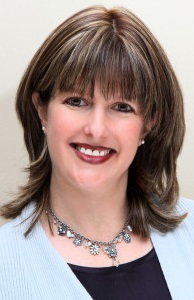
News

Give thanks for our freedom of religion – but don’t take it for granted
WENDY KAHN
For many years, the South African Jewish Board of Deputies (SAJBD) has contributed to the US State Department’s international report on religious freedom. It is an annual exercise where we reflect on threats to religious freedom in our country, as it relates to the Jewish community.
Our new democracy and internationally acclaimed Constitution protects religious rights in our country. It is something we applaud and appreciate. Bodies such as the CRL Rights Commission were established with a view to promoting and protecting cultural, religious, and linguistic rights in our country.
When I speak at international conferences and to local audiences, I share the manner in which our religious rights are upheld. This includes universities making provision for observant Jewish students to write exams at alternate times when they fall on Shabbat and chaggim. Our requirements for swift burial are accommodated. Even an election date was rescheduled away from Pesach so that 0.01% of the population could vote.
So, my experience in Washington last week was eye opening and sobering. For two days, I was exposed to individuals from countries where religious freedom is denied and forbidden.
I met people who are persecuted, living with hardship in countries that refuse to allow religious belief or practice. Their stories left me shocked and shaken.
In one of the sessions, Rabbi Arthur Schneier from the Appeal of Conscience Foundation, a Holocaust survivor and international religious freedom and human rights activist, spoke about his recollections of Kristalnacht. He cautioned that “those who burn books will go on to burn human beings”. That is exactly what we heard about. In the zeal to silence other religions, gross human rights violations are being perpetrated around the world.
I met and heard the stories of people persecuted for their religious beliefs in China, Burma, Pakistan, Turkey, North Korea, Iraq, Iran, Bangladesh, Nigeria, the Central African Republic, Sudan, and sadly many more. These were stories of horrific oppression, torture, and deprivation of rights, simply because they refused to turn their back on their religion.
On the first day, Presbyterian Pastor Andrew Brunson’s daughter shared the story of her father, who had been incarcerated for the past two years in Turkey for refusing to abandon his Christianity. The following morning ,we were greeted with the good news that he had been released from jail into house arrest.
Two young Iranian Christian women also shared their story. They were incarcerated in the Evan prison in 2009 for refusing to renounce their faith, alongside other minority groups. Following lengthily interrogation and torture, they were sentenced to execution. Refusing to distance themselves from their religion, they were denied access to prison services such as medical care. They were repeatedly pressurised to turn their back on Christianity, with descriptions of the hanging they would be subjected to. Eventually they were released following international pressure, but were warned that they would be closely watched, and that their safety would always be compromised. They fled the country, writing a book, and speaking out on the abuse of minorities in Iran.
A woman from the Bahai community in Iran shared a similar story, presenting us with a long list of family members who had been executed, persecuted, imprisoned, tortured, and had had their property confiscated.
Nadia Morad, a Yazidi woman, pleaded with the international community to intervene in the persecution of her community in Iraq. Today thousands of Yazidis still remain in captivity, and more than 350 000 are displaced.
Tahir Hamid told us of the persecution of the Uighur Muslim community in China, where many are detained in brutal “re-education” camps, subjected to constant surveillance, mosques are closed, and books burned in an attempt to force them to abandon their religion.
Reverend Johan Cao’s wife told us about her remarkable husband, who had built numerous schools in China and then in Myanmar. He was arrested for his faith-driven work. He lost 60 pounds (27kg) in prison, and was refused contact with family or legal counsel.
We heard from a Sudanese pastor who was incarcerated for two years for preaching Christianity. He was starved and beaten.
Peter Bhatti shared the story of his brother Shahbaz, Islamabad’s Minister for Minorities, who was assassinated in Pakistan for his Christian faith.
Human Rights lawyer Razia Sultana spoke about the ethnic cleansing of the Rohingya community in Burma, where rape is used as a weapon, and basic rights are denied. More than 700 000 civilians have been displaced in this crisis.
We were heartbroken by the testimony of a young, female refugee from North Korea, who spoke of forced abortion, torture, and solitary confinement.
At the close of the event, the Dalai Lama left us with a powerful message on the importance of respect for all religions.
I returned to South Africa humbled and sobered by the stories that I heard, and shocked at the ongoing persecution and deprivation of religious rights around the world. I felt grateful for Section 15 of our Constitution, which affirms our rights to freedom of religion in our country.
While we are privileged to live in a country that embraces diversity and religious freedom, we must continue to protect and fight for these values. Hate-filled rhetoric must be rejected and condemned, irrespective of the community it is targeted at. Any attempt to infringe on religious freedom, including attempts to sever ties with our biblical/religious/historical homeland, Israel, must be exposed and rejected with contempt.
I was touched by the words of one of the participants at the ministerial who said, “My faith is Christianity, but my religion is humanity.” After listening to so much anguish and horror, it was a moving and poignant message for so many around the world.
- Wendy Kahn is the National Director of the South African Jewish Board of Deputies.




